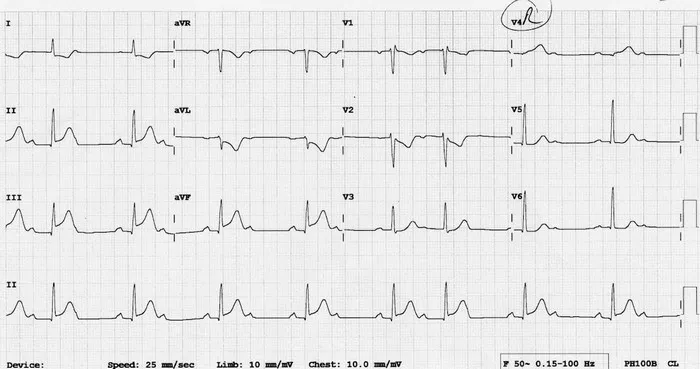Arrhythmia, a term that encompasses various irregularities in heart rhythm, can manifest in a myriad of symptoms. These symptoms serve as crucial indicators, prompting individuals to seek medical attention and potentially prevent serious complications. Understanding the signs of arrhythmia is vital for early detection and management. In this comprehensive guide, we delve into the diverse symptoms associated with arrhythmia, ranging from palpitations to more subtle indicators, shedding light on the nuances of this condition and the importance of timely intervention.
1. Palpitations: The Fluttering Heartbeat
One of the hallmark symptoms of arrhythmia is palpitations, often described as a fluttering or irregular heartbeat sensation.
Individuals may feel as though their heart is racing, skipping beats, or beating too slowly. Palpitations can occur at rest or during physical activity, and their frequency and intensity can vary.
2. Dizziness And Lightheadedness: Feeling Unsteady
Arrhythmia can cause episodes of dizziness or lightheadedness, especially when the heart rate becomes irregular or rapid.
These sensations may be accompanied by a feeling of weakness or faintness, posing risks of falls or accidents if not addressed promptly.
3. Shortness of Breath: Difficulty Catching Your Breath
Another common symptom of arrhythmia is shortness of breath, particularly during exertion or when lying flat. This symptom may be attributed to the heart’s inability to pump efficiently due to irregular rhythms, leading to inadequate oxygen delivery to the body’s tissues.
4. Chest Discomfort or Pain: Uncomfortable Sensations
Arrhythmia can manifest as chest discomfort or pain, although this symptom is more commonly associated with other cardiac conditions such as angina or heart attacks. However, certain arrhythmias, especially those causing rapid heart rates or significant irregularities, can induce chest sensations that mimic cardiac-related pain.
5. Fatigue And Weakness: Persistent Tiredness
Chronic fatigue and weakness are potential symptoms of arrhythmia, as irregular heart rhythms can compromise the heart’s ability to pump effectively. This can lead to reduced oxygen supply to muscles and organs, resulting in persistent feelings of tiredness and weakness.
6. Fainting or Near-Fainting Spells: Loss of Consciousness
In some cases, arrhythmia may cause fainting (syncope) or near-fainting spells. These episodes occur when the heart’s rhythm becomes severely irregular, leading to a temporary decrease in blood flow to the brain. Prompt evaluation is crucial to determine the underlying cause and prevent future episodes.
7. Rapid Heartbeat (Tachycardia) or Slow Heartbeat (Bradycardia): Variations in Heart Rate
Arrhythmias can result in rapid heart rates (tachycardia) or slow heart rates (bradycardia), depending on the specific type of arrhythmia. Tachycardia may cause palpitations, dizziness, or shortness of breath, while bradycardia can lead to fatigue, dizziness, and fainting.
8. Irregular Heartbeat: Variability in Heart Rhythm
An irregular heartbeat, where the rhythm varies unpredictably, is a common manifestation of arrhythmia. This irregularity may be detected during a physical examination or through monitoring devices such as electrocardiograms (ECGs). It can contribute to symptoms like palpitations, dizziness, and fatigue.
9. Anxiety or Panic Attacks: Emotional Responses
Arrhythmias, particularly those causing palpitations or chest discomfort, can trigger anxiety or panic attacks in some individuals. These emotional responses may exacerbate physical symptoms and necessitate comprehensive evaluation to address both cardiac and psychological aspects.
10. Other Symptoms: Less Common Manifestations
While the above symptoms encompass the primary indicators of arrhythmia, some individuals may experience less common manifestations, including neck or throat discomfort, a feeling of fullness in the chest, or sensations of fluttering in the throat or neck area. These symptoms, although less prevalent, should not be overlooked, especially in conjunction with other cardiac risk factors or conditions.
Seeking Medical Evaluation
It’s essential to emphasize that experiencing one or more of these symptoms does not necessarily indicate arrhythmia, as they can result from various medical conditions or lifestyle factors. However, persistent or concerning symptoms warrant prompt medical evaluation, including a comprehensive history, physical examination, and diagnostic tests such as:
- ECGs
- Holter monitors
- event monitors
Conclusion
Recognizing the signs and symptoms of arrhythmia is paramount in promoting cardiovascular health and preventing potential complications. From palpitations and dizziness to chest discomfort and fatigue, understanding the diverse manifestations of arrhythmia empowers individuals to seek timely medical attention, leading to accurate diagnosis and tailored management strategies. Collaborative efforts between patients, healthcare providers, and cardiac specialists are pivotal in navigating the complexities of arrhythmia and optimizing heart rhythm health for improved quality of life.

